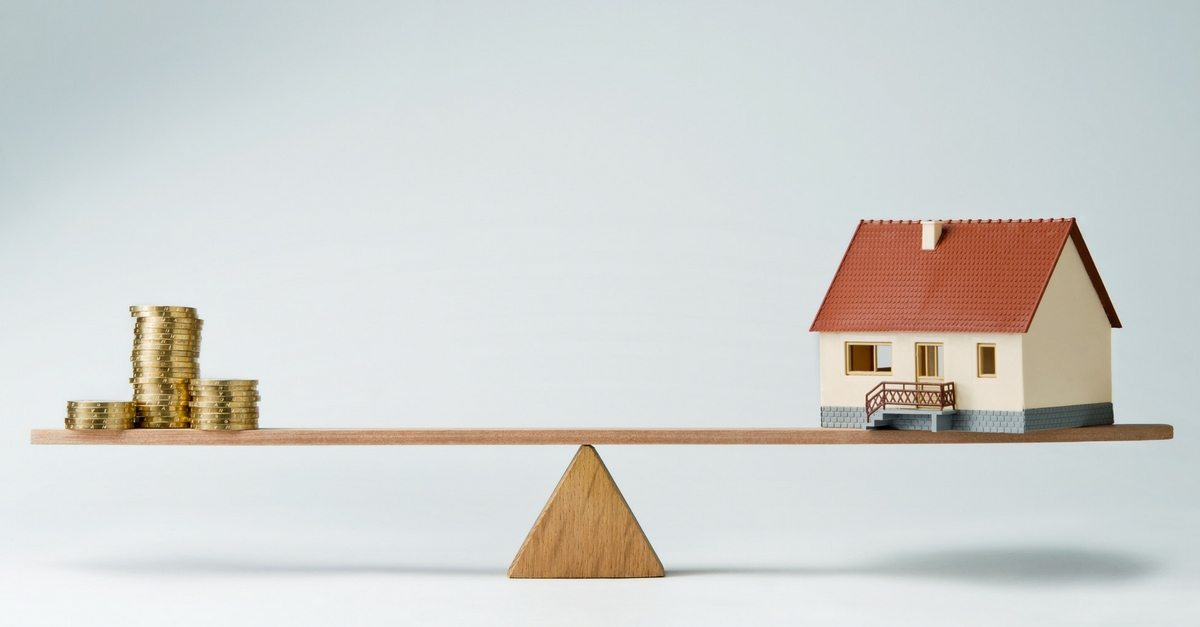
How do real estate prices impact the number of people who file bankruptcy? To answer that question, we are pleased to release the Hoyes Michalos Homeowner’s Bankruptcy Index (“HBI”). The HBI shows the percentage of Hoyes Michalos clients who own a home at the time they file a consumer proposal or bankruptcy.
Table of Contents
Real estate prices holding down bankruptcy filings
The HBI peaked at 35% in February, 2011, when over one-third of people declaring insolvency owned a home. The index has consistently dropped since that time as the Ontario economy improved. However, the rate of decline has accelerated sharply since the fall of 2016 as the real estate market has over-heated, reaching a new low for the month of May, 2017 at 7%.
In Ontario, if you have owned a home over the last few years, rising home prices have increased your home equity, greatly reducing the need to file bankruptcy.
Homeowners still carrying excessive debt
This reduction in bankruptcy and consumer proposal filings does not imply that homeowners have less debt. In fact, homeowners are carrying record levels of unsecured debt (debt that is not a mortgage or car loan). In our 2017 Joe Debtor study, the average insolvent homeowner had unsecured debt of $72,510, significantly greater than our average client’s unsecured debt of $52,634. Homeowners have 72% more credit card debt and 79% more personal loan debt than non-homeowners.
Here’s the point: banks and mortgage brokers love homeowners! In a rising real estate market they consider anyone who owns their own home to be a good credit risk. Not only do they want to give you a mortgage, they are also happy to give you a home equity line of credit, more credit cards and unsecured personal loans. They assume that because you own a home, you are a good credit risk.
Guess what: for now, at least, they are correct. That’s why today only 7% of homeowners end up going bankrupt or filing a consumer proposal.
Debt consolidation the ticking time bomb
My team hears a similar story every day: we get a phone call on our 310-PLAN hotline for a person with lots of debt; they are considering a consumer proposal. We ask if they own a house, and they say “yes, but I don’t have enough equity to borrow against the house to pay off mydebts.” We advise them to call a real estate agent or appraiser and find out what their house is worth. They call us back and say “guess what, my house is worth a lot more than I thought, I can get a second mortgage and pay off my credit cards, so thanks, I don’t need to file a consumer proposal!” Instead they are going to move their debt around via a debt consolidation loan.
Rising real estate prices are the reason that a lot of people who would have filed a consumer proposal or bankruptcy in the past don’t need to today. They still have a lot of debt, but they can use their house like a perpetual cash-generating machine, and use the increasing equity to borrow at inexpensive mortgage interest rates to pay off high interest credit cards.
Potential for a big crash
While a drop in consumer insolvencies might seem like good news, I have two big concerns:
First, I’m very worried that homeowners are getting used to using their credit card and unsecured lines of credt as much as they want, knowing that they don’t have to worry about paying them off, because when the bills come due, they can use “free money” from their house. In a normal world, debt has consequences. Today, it doesn’t.
My bigger concern is that real estate prices don’t go up forever. Nothing does. In fact, I am on record as stating that the peak of the Toronto real estate market happened on April 26, 2017 (approximately the time that Home Capital Group, a huge mortgage lender, had a “run on the bank”). Recent numbers suggest that prices are dropping.
Is this a temporary drop or a permanent decline? We won’t know for a few months, but I know this: if house prices stop increasing, homeowners won’t be able to continue to borrow against their home equity to deal with other debts.
So here’s another prediction: I predict that somewhere in the range of 5% to 7% will be the bottom of the Hoyes Michalos HBI. It won’t go any lower than that, which implies we will start to see more homeowners with excessive unsecured debt choosing to file insolvency.
My @BNN interview from this morning:
Canadians add to mortgage to avoid bankruptcy https://t.co/CqbdKpMdSd— Doug Hoyes (@doughoyes) June 13, 2017
Here’s my advice
If you are thinking of selling your house and downsizing, talk to a real estate agent today and consider your options. If we are at the peak of the market, there will be no better time to sell.
If you have more debt than you can handle, get help today. It may be possible to use the remaining equity in your house to fund a consumer proposal, so you can keep your house and deal with your debt.
Stay tuned: I suspect there will be many more developments that we will be discussing in the coming months in this fast-moving real estate market.






